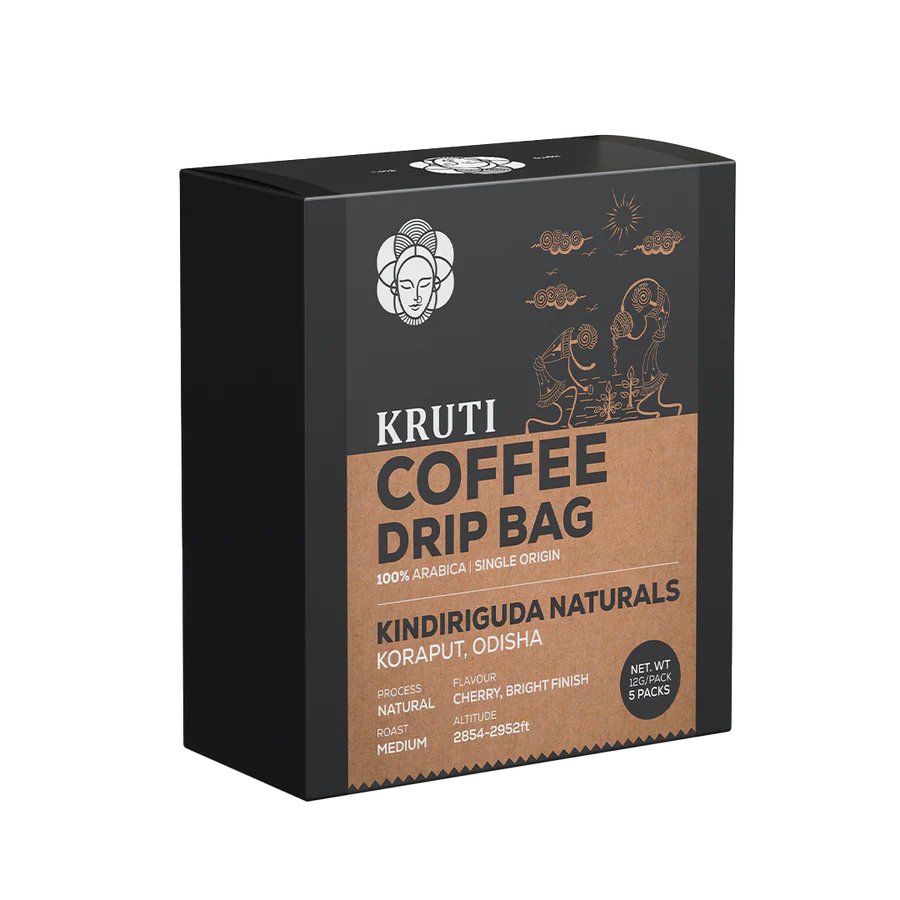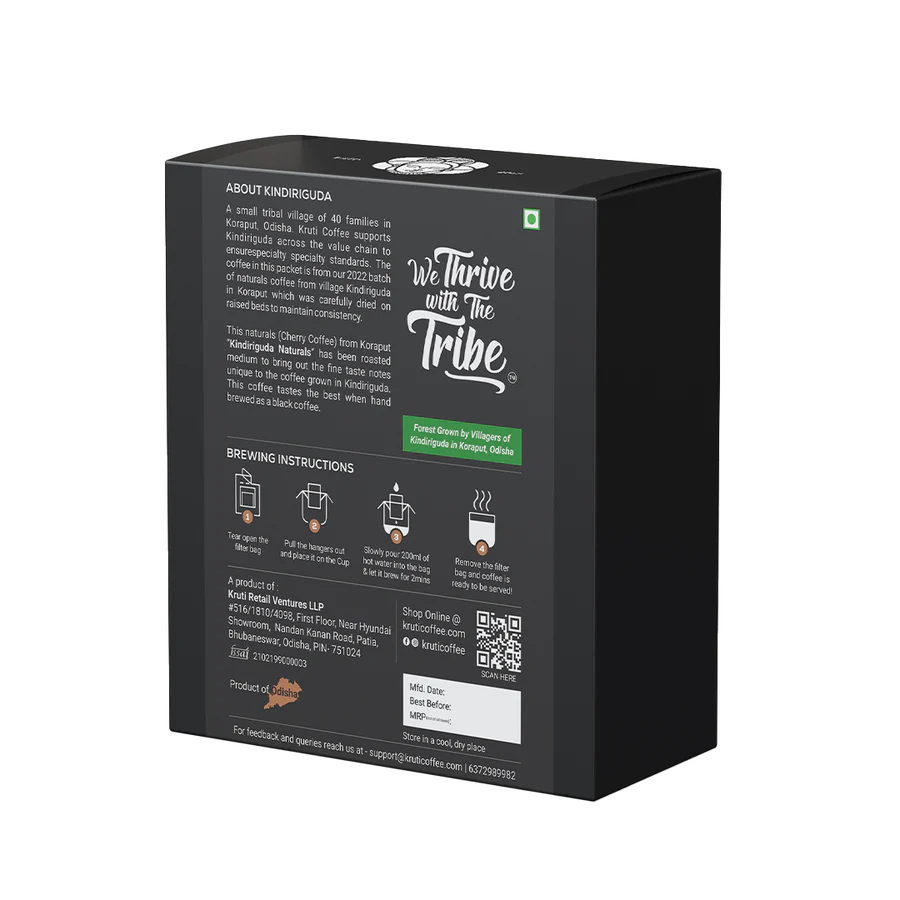Kruti Coffee – Kindiriguda Naturals Drip Bag | Medium Roast – Pack of 5
₹240.0
Product Info
100% ARABICA | SINGLE ORIGIN
PROCESS: NATURAL FLAVOUR: CHERRY, BRIGHT FINISH
ROAST: MEDIUM ALTITUDE: 2854-2952 FT MSL
ORIGIN: KORAPUT, ODISHA
USP: FOREST GROWN, SHADE GROWN , TRIBAL GROWN
QUANTITY: 5 DRIP BAGS (EACH 12 GRAM)
These drip bags have been specially designed to make brewing easy for you at home or as you travel. Please refer packaging for brewing instruction.
This specialty washed coffee from Kindiriguda- “Kindiriguda Naturals” has been roasted medium for those who like the nuanced taste notes characteristic of the coffee from Kindiriguda in Koraput.
About Kindiriguda: A small tribal village of 40 families in Koraput, Odisha. Kruti Coffee supports Kindiriguda tribal coffee farmers across the value chain to ensure specialty standards are maintained throughout. The coffee in this packet is from the 2021-2022 batch of washed coffee from Koraput which was carefully dried on raised beds to maintain consistency.
- Description
- Additional information
- Reviews (0)
- Q & A
- Sustainability Remark
- More Offers
- Store Policies
- Inquiries
| brands | Kruti Coffee |
|---|
You must be logged in to post a review.
Q & A
Organic coffee is often considered more sustainable compared to conventionally grown coffee due to its environmentally friendly cultivation practices. Here are some key aspects highlighting the sustainability of organic coffee:
Chemical-free farming: Organic coffee is grown without the use of synthetic pesticides, herbicides, and fertilizers. Instead, farmers rely on natural and organic methods to control pests and diseases, such as companion planting, crop rotation, and the use of organic fertilizers. This reduces the release of harmful chemicals into the environment, protecting ecosystems, soil quality, and water resources.
Biodiversity conservation: Organic coffee farms prioritize the preservation of biodiversity. By avoiding synthetic chemicals, organic farms provide a healthier habitat for birds, insects, and other wildlife. Many organic coffee farms are also shade-grown, meaning the coffee plants are grown under the canopy of trees, which further enhances biodiversity and supports the natural ecosystem.
Soil health and carbon sequestration: Organic farming practices promote soil health and fertility. The use of organic fertilizers and compost improves soil structure, water retention, and nutrient content. Healthy soils have the capacity to store carbon, contributing to carbon sequestration and mitigating climate change.
Water conservation: Organic coffee farming typically employs practices that help conserve water resources. These include mulching to retain soil moisture, efficient irrigation systems, and agroforestry techniques that reduce water runoff and erosion. By reducing water usage and protecting water quality, organic coffee production has a lower impact on local watersheds.
Fair trade and social responsibility: Many organic coffee producers adhere to fair trade principles, ensuring that farmers receive fair prices for their products and promoting equitable trade relationships. Organic certification often goes hand in hand with fair trade certification, supporting sustainable livelihoods for coffee farmers and their communities.
It's important to note that while organic coffee brings several sustainability benefits, there are still challenges to address. For instance, organic coffee farming can have lower yields compared to conventional methods, which can affect farmer incomes. Additionally, transportation and distribution practices within the coffee supply chain also contribute to the overall sustainability of organic coffee. Nonetheless, organic coffee production remains a significant step towards more environmentally and socially responsible coffee farming.
General Inquiries
There are no inquiries yet.



















Reviews
There are no reviews yet.